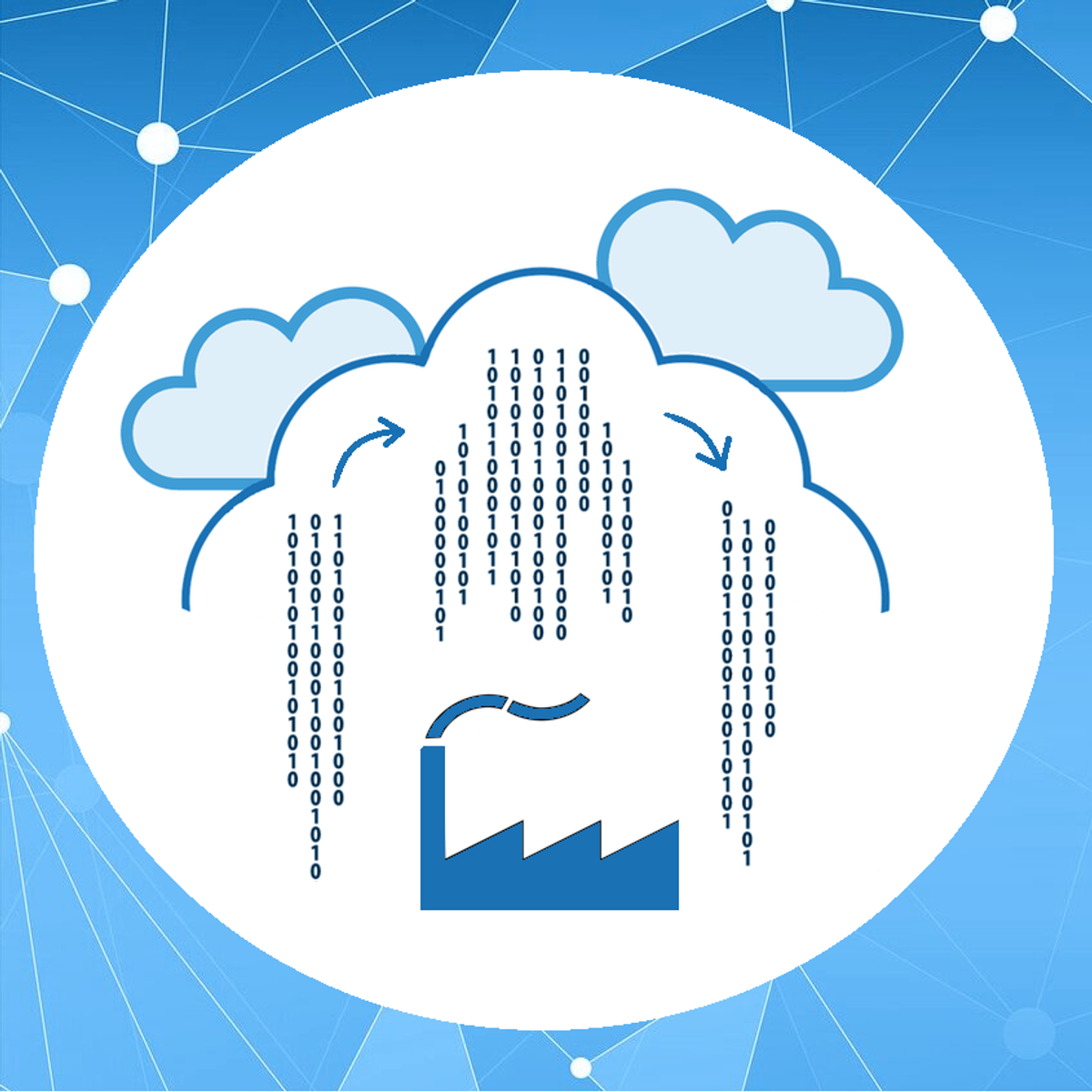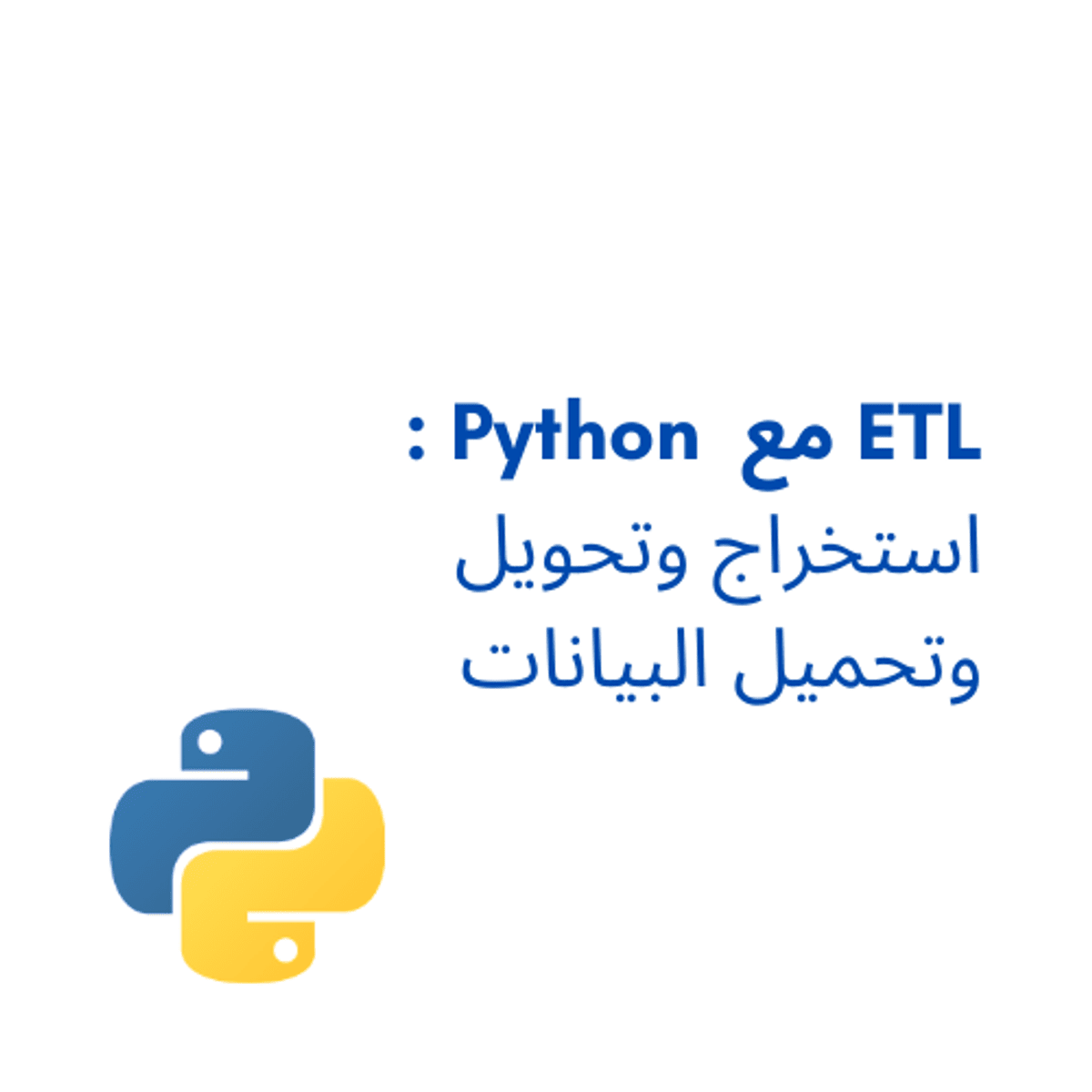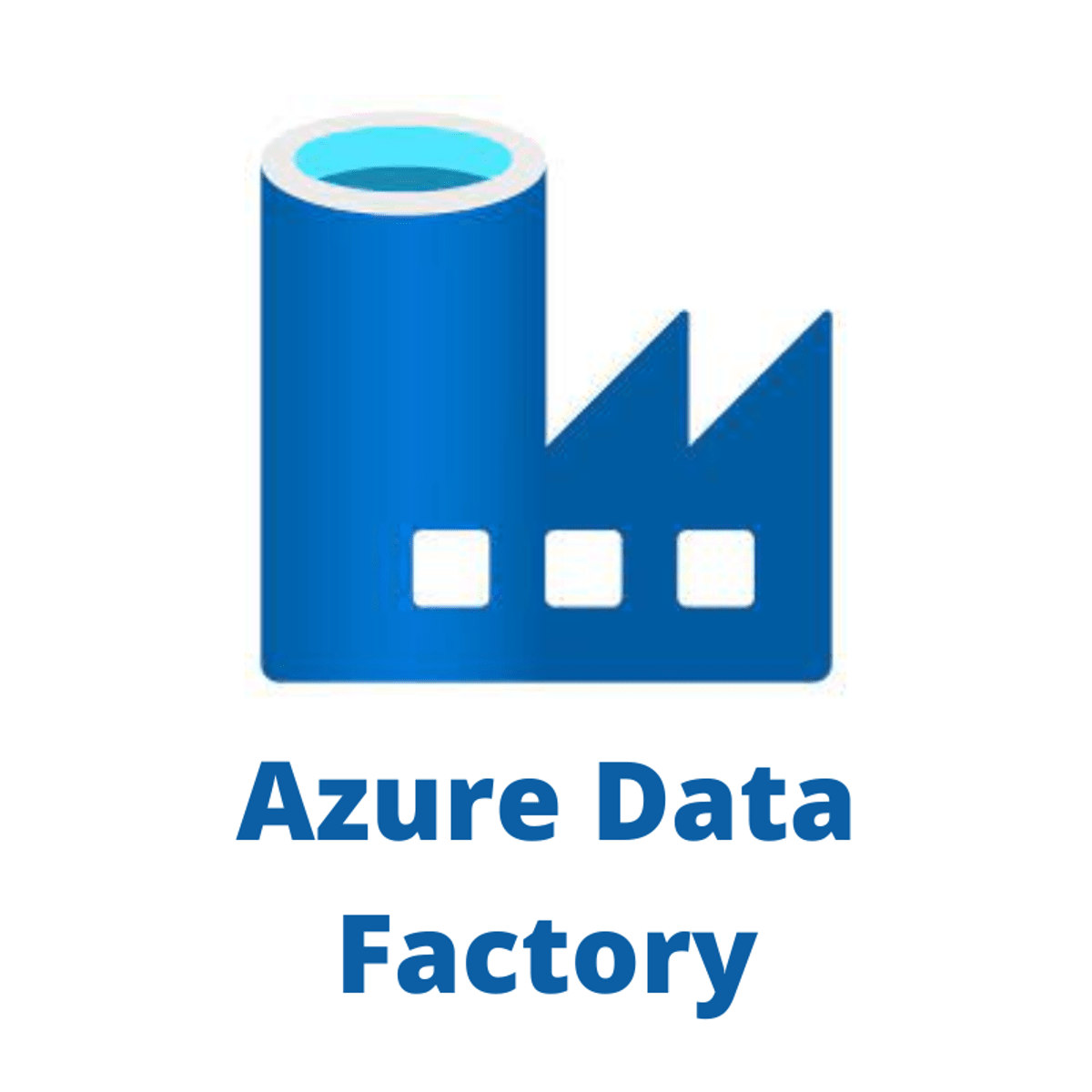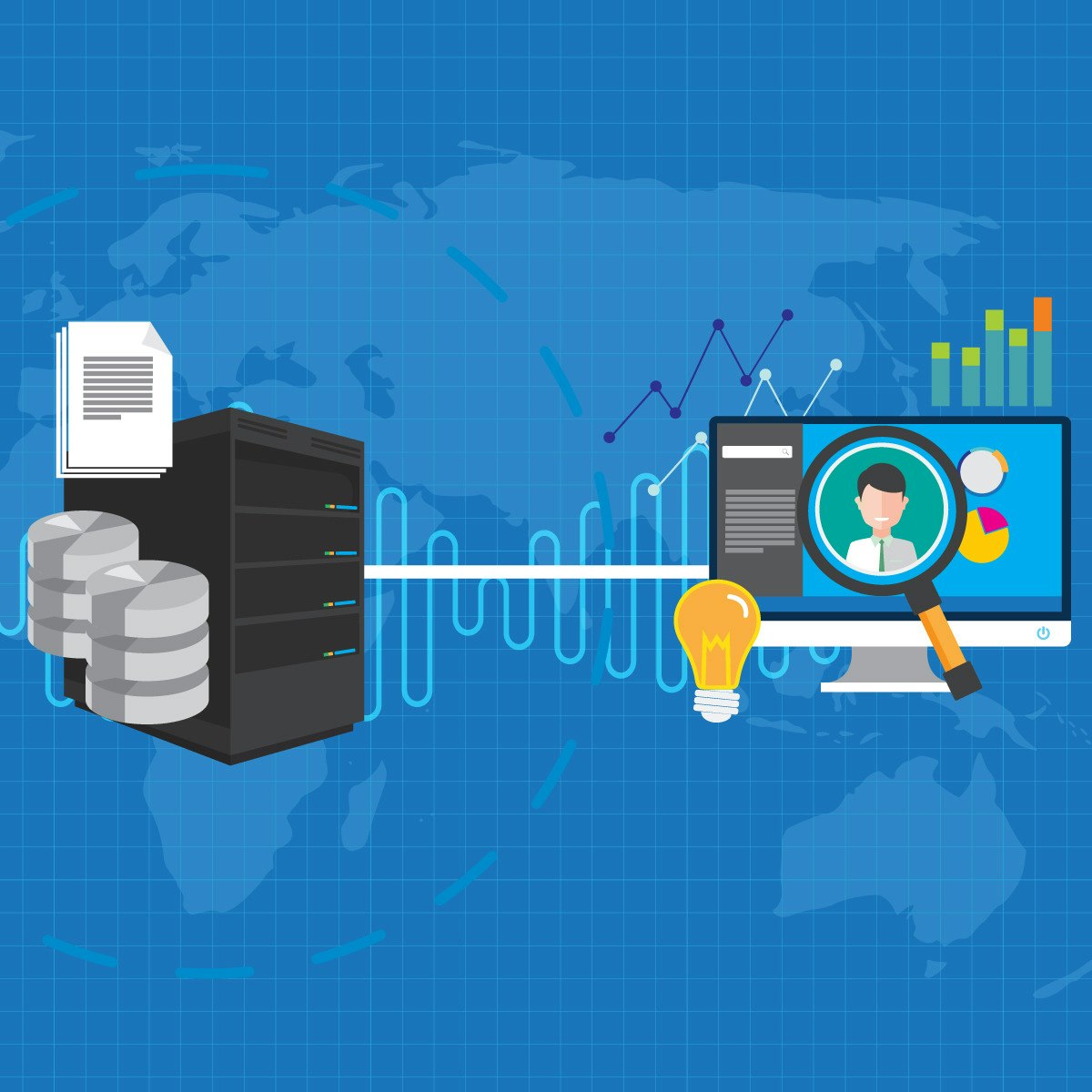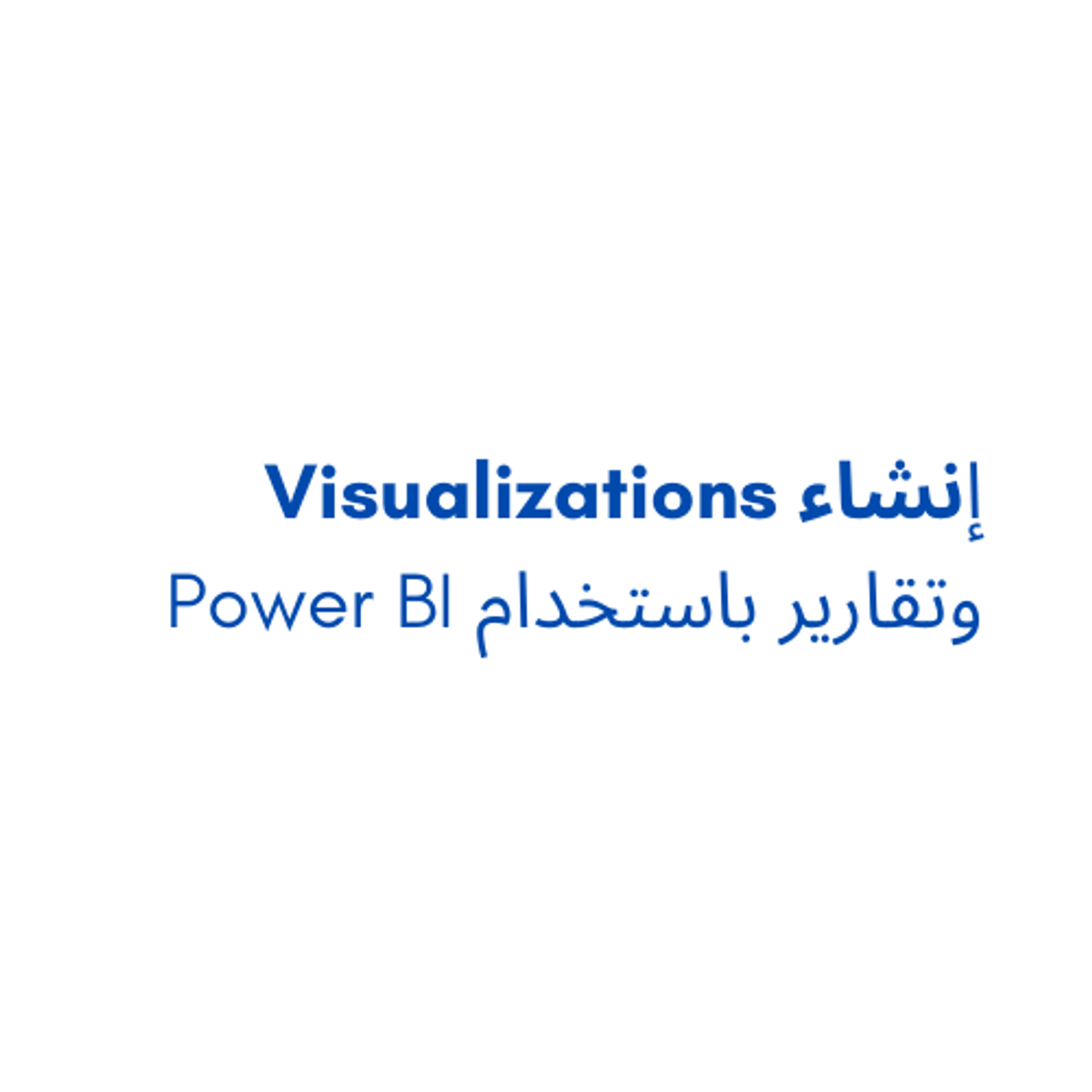ETL Developer
ETL Developer: Architecting the Flow of Data
At its core, an ETL Developer is a specialized software engineer focused on the critical processes that allow businesses to leverage their data effectively. They design, build, and maintain the systems responsible for Extracting data from various sources, Transforming it into a usable and consistent format, and Loading it into a target system, typically a data warehouse or data lake, for analysis and reporting. Think of them as the architects and plumbers of the data world, ensuring information flows smoothly and accurately from its origin to its destination where it can provide valuable insights.
Working as an ETL Developer can be deeply engaging. You'll tackle complex puzzles involving diverse data systems, ensuring data integrity across transformations. The role often involves collaborating closely with data analysts, data scientists, and business stakeholders, placing you at the heart of an organization's data strategy. Seeing your pipelines efficiently deliver clean, reliable data that drives business decisions can be incredibly rewarding.
What is an ETL Developer?
The Core Concept: Extract, Transform, Load
The acronym ETL stands for Extract, Transform, Load, which describes the three primary stages of the data integration process managed by an ETL Developer. Extraction involves gathering raw data from numerous sources, which could include databases (like SQL Server or Oracle), flat files (like CSVs), APIs, web scraping, or even cloud storage services. This initial step collects the necessary information, sometimes from systems with very different structures.
Transformation is often the most complex phase. Here, the raw extracted data is cleaned, validated, standardized, and reshaped to fit the requirements of the target system and analytical needs. This might involve filtering data, converting data types, joining datasets, aggregating information, applying business rules, or masking sensitive data to comply with privacy regulations.
Finally, Loading involves depositing the transformed data into the designated target system. This could be a traditional data warehouse, a data mart focused on a specific business area, a cloud data platform like Amazon Redshift or Google BigQuery, or another database optimized for reporting and business intelligence. The goal is to make the processed data accessible and usable for analysis.
Why ETL Matters: Data Integration and Business Intelligence
In today's data-driven world, organizations collect vast amounts of information from countless sources – sales transactions, customer interactions, website logs, operational systems, and more. This data often resides in disparate "silos," making it difficult to get a unified view of the business or perform comprehensive analysis.
ETL processes are fundamental to breaking down these silos. By consolidating data from various sources into a central repository, ETL enables Business Intelligence (BI) and analytics. It ensures data consistency and quality, providing a "single source of truth" that decision-makers can trust.
Without effective ETL, analytics efforts would be hampered by inaccurate, incomplete, or inconsistent data. ETL Developers play a vital role in ensuring that the data powering reports, dashboards, and analytical models is reliable, timely, and fit for purpose, ultimately supporting better business strategies and outcomes.
Who Uses ETL?: Key Industries
ETL processes are ubiquitous across nearly every industry that relies on data for decision-making. Financial services companies use ETL to consolidate transaction data, manage risk, and comply with regulatory reporting requirements. Healthcare organizations leverage ETL to integrate patient records, claims data, and clinical trial information for research and improved patient care.
Retail and e-commerce businesses depend on ETL to analyze sales trends, customer behavior, and supply chain logistics, optimizing inventory and marketing strategies. The technology sector uses ETL extensively for product analytics, user behavior tracking, and operational monitoring. Telecommunications, manufacturing, government agencies, and entertainment companies also rely heavily on ETL developers to manage and make sense of their data.
Essentially, any organization aiming to harness the power of its data assets requires robust ETL capabilities and the skilled developers who build and maintain them. The demand spans across sectors, highlighting the fundamental importance of this role in the modern data landscape.
You can explore relevant courses across industries like Finance & Economics or Health & Medicine on OpenCourser.
A Brief Look Back: Evolution of ETL
The concept of ETL emerged alongside the rise of data warehousing in the 1970s and 1980s. Early data warehouses required methods to extract data from operational systems (often mainframes), transform it into a consistent format suitable for analysis, and load it into the warehouse. These initial processes were often custom-coded and complex.
The 1990s saw the development of dedicated ETL tools (like Informatica PowerCenter and tools integrated with database suites like Microsoft SSIS) aimed at simplifying and standardizing these workflows. These tools offered graphical interfaces and pre-built components, reducing the need for extensive custom programming.
With the advent of big data and cloud computing in the 2000s and 2010s, ETL evolved further. New challenges arose, such as handling massive data volumes, diverse data types (structured, semi-structured, unstructured), and the need for faster processing. This led to the rise of cloud-based ETL services (like AWS Glue, Azure Data Factory) and integration with big data frameworks like Apache Spark and Hadoop. The ELT (Extract, Load, Transform) pattern also gained prominence, leveraging the processing power of modern cloud data warehouses.
The Daily Life of an ETL Developer
Building the Highways: Designing and Maintaining Data Pipelines
A core responsibility of an ETL Developer is designing the architecture for data movement. This involves understanding business requirements, identifying data sources, defining transformation logic, and selecting appropriate tools and target destinations. They create blueprints for how data should flow, ensuring efficiency, scalability, and reliability.
Once designed, developers implement these blueprints by building ETL pipelines. This often involves using specialized ETL software (like Informatica, Talend, or SSIS) or writing scripts in languages like Python or SQL. They configure extraction processes, code the necessary transformations, and set up the loading mechanisms.
Maintenance is an ongoing task. Data sources change, business requirements evolve, and systems need updates. ETL Developers monitor pipeline performance, troubleshoot failures, update logic, and adapt pipelines to new needs, ensuring the continuous and accurate delivery of data.
These courses offer practical experience in building and managing data pipelines.
Ensuring Accuracy: Data Validation and Quality Assurance
Data is only valuable if it's accurate and trustworthy. ETL Developers are guardians of data quality. They implement checks and balances throughout the ETL process to validate data integrity. This includes verifying data types, checking for missing values, identifying outliers, and ensuring consistency across different datasets.
They design and implement data cleansing routines to correct errors or inconsistencies found during validation. This might involve standardizing formats (like dates or addresses), handling duplicate records, or imputing missing values based on defined rules. Ensuring data quality is crucial for reliable analytics and reporting.
Testing is another critical aspect. ETL Developers create test cases to ensure pipelines function correctly and that the transformations produce the expected results. They test individual components and the end-to-end workflow, often comparing output data against source data or predefined benchmarks to guarantee accuracy before data reaches end-users.
This course focuses specifically on the testing aspect of ETL processes.
Team Player: Collaborating with Data Professionals
ETL Development is rarely a solo endeavor. Developers work closely with various stakeholders. They collaborate with business analysts to understand data requirements and translate business needs into technical specifications for ETL processes. Clear communication is key to ensuring the pipelines deliver the right data for analysis.
They also partner with data analysts and data scientists who are the primary consumers of the data loaded by ETL pipelines. ETL Developers need to understand how the data will be used to ensure it's structured appropriately and meets analytical requirements. Feedback from analysts often informs pipeline improvements.
Collaboration extends to database administrators (DBAs) to understand source system structures and optimize queries, and data architects to ensure ETL designs align with the overall data architecture strategy. Effective teamwork and communication skills are essential for success in this role.
Making it Faster: Performance Tuning and Optimization
Efficient data pipelines are crucial, especially when dealing with large volumes or time-sensitive data. ETL Developers are responsible for monitoring the performance of their pipelines, identifying bottlenecks, and implementing optimizations to improve speed and resource utilization.
This might involve rewriting inefficient SQL queries, optimizing transformation logic, configuring parallel processing within ETL tools, or partitioning large datasets for faster loading. They analyze execution logs and performance metrics to pinpoint areas for improvement.
Optimization also involves resource management, ensuring ETL jobs don't overwhelm source systems or the target data warehouse. As data volumes grow, continuous performance tuning is necessary to maintain efficient data delivery and meet service level agreements (SLAs) for data availability.
Essential Toolkit: Skills and Knowledge
The Language of Data: SQL Proficiency
Structured Query Language (SQL) is the bedrock skill for any ETL Developer. It's the primary language used to interact with relational databases, which are common data sources and often targets (data warehouses). Proficiency in SQL is essential for extracting data effectively from source systems.
SQL is also heavily used within the transformation phase. Developers write complex queries to filter, join, aggregate, and manipulate data. Understanding advanced SQL concepts like window functions, common table expressions (CTEs), and stored procedures is crucial for building efficient and sophisticated transformations.
Furthermore, SQL knowledge is vital for validating data, troubleshooting issues within pipelines, and optimizing query performance for both extraction and loading. A deep understanding of SQL dialects specific to common databases (like Oracle SQL, T-SQL for SQL Server, PostgreSQL) is highly beneficial.
These courses provide a strong foundation and advanced knowledge in SQL.
Beyond SQL: Scripting Languages (Python, Bash)
While SQL is crucial for database interactions, scripting languages provide the flexibility needed for automation, handling complex logic, and interacting with diverse systems. Python has become particularly popular in the ETL world due to its extensive libraries for data manipulation (like Pandas), database connectivity, and API interaction.
Python scripts can automate file handling, orchestrate ETL workflows, perform complex transformations that are difficult or inefficient in SQL, and integrate with various cloud services and big data tools. It's often used for custom ETL logic or to glue different parts of a data pipeline together.
Shell scripting languages like Bash (on Linux/Unix systems) are also valuable for automating tasks, managing files, and scheduling jobs. Familiarity with scripting allows ETL Developers to build more robust and automated data integration solutions beyond the capabilities of graphical ETL tools alone.
These resources help build proficiency in relevant scripting languages.
Mastering the Tools: Common ETL Platforms
ETL Developers rely heavily on specialized ETL tools and platforms designed to streamline the process of building and managing data pipelines. Proficiency in one or more major ETL tools is a common requirement. Popular enterprise tools include Informatica PowerCenter, IBM DataStage, and Microsoft SQL Server Integration Services (SSIS).
Open-source alternatives like Talend Open Studio and Pentaho Data Integration (Kettle) are also widely used. These tools typically offer graphical user interfaces (GUIs) for designing workflows, pre-built connectors for various data sources and targets, and components for common transformation tasks, significantly speeding up development.
Understanding the specific features, strengths, and weaknesses of different ETL tools is important. Experience involves not just using the GUI but also understanding how to configure connections, optimize job performance, handle errors, and potentially extend the tool's functionality with custom code or scripts.
Here are courses focused on popular ETL tools:
Structuring Data: Data Modeling and Database Design
ETL Developers need a solid understanding of database concepts and data modeling principles. This involves knowing how data is structured in source systems (often relational databases using normalization) and how it should be structured in the target data warehouse for optimal analytical performance (often using dimensional modeling techniques like star schemas or snowflake schemas).
Understanding data modeling helps developers design effective transformations that map data correctly from source structures to target structures. It also aids in designing efficient loading strategies and ensuring the final data warehouse structure supports the required business intelligence queries and reports.
Knowledge of database design includes understanding data types, primary and foreign keys, indexing strategies, and partitioning. While a dedicated Data Architect might design the overall warehouse, the ETL Developer implements the loading processes and needs to understand the design rationale to do so effectively.
These resources cover essential data modeling and database concepts.
ETL in the Cloud: Leveraging Cloud Platforms
As organizations increasingly move their data infrastructure to the cloud, ETL Developers must be proficient with cloud platforms and their associated data services. Major cloud providers like Amazon Web Services (AWS), Microsoft Azure, and Google Cloud Platform (GCP) offer suites of tools specifically for data integration and ETL.
Examples include AWS Glue, Azure Data Factory, and Google Cloud Dataflow/Dataproc. These services provide scalable, managed environments for building and running ETL pipelines, often integrating seamlessly with cloud storage (like S3 or Azure Blob Storage) and cloud data warehouses (like Redshift, Synapse Analytics, or BigQuery).
Familiarity with cloud concepts like serverless computing, managed services, cloud security, and cost optimization is becoming essential. ETL Developers working in cloud environments need to know how to leverage these platform-specific tools effectively to build modern, scalable data pipelines.
Explore cloud-based ETL tools with these courses:
Navigating the Technology Landscape
Choosing Your Tools: Open-Source vs. Proprietary
The ETL tool market offers a wide range of options, broadly categorized into proprietary (commercial) and open-source tools. Proprietary tools like Informatica PowerCenter, IBM DataStage, and Microsoft SSIS often come with extensive features, dedicated support, and a long history in enterprise environments, but typically involve significant licensing costs.
Open-source tools like Talend Open Studio, Apache NiFi, and Pentaho Data Integration offer cost savings on licensing and benefit from active community support and customization potential. However, they might require more in-house technical expertise for setup, maintenance, and advanced feature implementation. Cloud-native ETL services (AWS Glue, Azure Data Factory, Google Cloud Dataflow) represent another category, offering pay-as-you-go pricing and tight integration with their respective cloud ecosystems.
The choice often depends on factors like budget, existing infrastructure, technical expertise within the team, specific feature requirements, scalability needs, and vendor support preferences. ETL Developers should be aware of the trade-offs and ideally gain experience with tools from different categories.
These courses cover specific proprietary and open-source tools.
Handling Big Data: Integration with Frameworks like Hadoop and Spark
The rise of Big Data technologies has significantly influenced ETL practices. Frameworks like Apache Hadoop (with components like HDFS for storage and MapReduce/YARN for processing) and, more prominently, Apache Spark, are designed to handle massive datasets distributed across clusters of machines.
Modern ETL processes often need to integrate with these frameworks. ETL tools may use Spark as their underlying processing engine for transformations, allowing them to scale horizontally to handle petabytes of data. Developers might write Spark code (using Scala, Python via PySpark, or Spark SQL) directly for complex transformations within their pipelines.
Understanding how to interact with Hadoop ecosystems (e.g., reading from/writing to HDFS, querying data stored in Hive) and leveraging Spark's capabilities for distributed data processing are increasingly valuable skills for ETL Developers working in environments with large-scale data challenges.
Gain expertise in Spark and Hadoop with these learning resources.
Managing Change: Version Control and CI/CD in ETL
As ETL processes become more complex and critical to business operations, adopting software engineering best practices like version control and CI/CD (Continuous Integration/Continuous Deployment) is essential. Version control systems, primarily Git, allow developers to track changes to ETL code (scripts, SQL queries, tool configurations), collaborate effectively, and revert to previous versions if needed.
CI/CD pipelines automate the testing and deployment of ETL code. Continuous Integration involves automatically building and testing code changes whenever they are committed to a central repository. This helps catch errors early.
Continuous Deployment automates the release of validated code changes to production environments. Applying CI/CD principles to ETL workflows improves reliability, reduces manual deployment errors, and enables faster iteration and delivery of new data pipelines or updates. Familiarity with Git, CI/CD tools (like Jenkins, GitLab CI, Azure DevOps), and related concepts is increasingly expected.
Building Your Foundation: Education
Formal Education Routes (Degrees, Certifications)
While not always strictly mandatory, a bachelor's degree in Computer Science, Information Technology, Data Science, or a related field provides a strong theoretical foundation for an ETL Developer career. Coursework in database management, data structures, algorithms, programming, and software engineering is highly relevant.
Beyond degrees, professional certifications can validate specific skills and knowledge. Vendor-specific certifications related to popular ETL tools (like Informatica Certified Professional, Microsoft Certified: Azure Data Engineer Associate which covers Azure Data Factory) or cloud platforms (AWS Certified Data Analytics - Specialty, Google Cloud Professional Data Engineer) are valuable.
Database certifications (like Oracle Certified Professional or Microsoft SQL Server certifications) also demonstrate crucial expertise. These credentials can enhance a resume and demonstrate commitment to the field, especially for those transitioning careers or seeking advancement.
These courses align with popular industry certifications.
The Power of Online Learning (MOOCs, Bootcamps)
Online learning platforms offer accessible and flexible pathways to acquire ETL-specific skills. Massive Open Online Courses (MOOCs) from providers available on OpenCourser cover foundational topics like SQL, Python, database design, data warehousing, and specific ETL tools or cloud platforms. These courses often provide structured learning paths and hands-on exercises.
Online courses are highly suitable for building a solid foundation, especially for career changers or those looking to supplement traditional education. They allow learners to focus on practical, in-demand skills at their own pace. Many platforms offer specializations or professional certificates composed of several related courses, providing comprehensive training in areas like data engineering or cloud data management.
Data engineering bootcamps, often offered online, provide intensive, immersive training focused on job readiness. While requiring a significant time and financial commitment, they aim to quickly equip participants with the practical skills and portfolio projects needed to enter the field. OpenCourser's Data Science and Tech Skills categories list numerous relevant courses.
These courses exemplify the breadth of online learning options for aspiring ETL Developers.
Showcasing Your Skills: Projects and Portfolios
Theoretical knowledge is important, but practical experience is what truly demonstrates capability. Building personal projects is crucial, especially for those entering the field or transitioning careers. These projects allow learners to apply concepts learned through courses and build tangible evidence of their skills.
An ETL project might involve extracting data from public APIs or datasets, cleaning and transforming it using Python or an ETL tool, and loading it into a local database or cloud data warehouse. Documenting the process, challenges faced, and solutions implemented is key. Projects focused on specific tools (like building an SSIS package or an AWS Glue job) are also valuable.
Compiling these projects into a portfolio (e.g., using GitHub to host code and documentation) provides concrete examples for potential employers. A well-presented portfolio showcasing diverse skills – data extraction, transformation logic, database interaction, tool usage, automation – can significantly strengthen a job application.
Consider these project-focused courses to build your portfolio.
Your Career Trajectory as an ETL Developer
Starting Out: Entry-Level Roles
Individuals often enter the ETL field through roles like Junior ETL Developer, Data Integration Analyst, or sometimes as a Data Analyst with ETL responsibilities. In these initial positions, the focus is typically on learning the specific tools and processes used by the organization, assisting senior developers, and handling less complex ETL tasks.
Responsibilities might include maintaining existing ETL jobs, performing basic data transformations, troubleshooting minor issues, writing documentation, and learning data quality procedures. An entry-level role provides crucial hands-on experience with real-world data integration challenges and exposure to enterprise-level systems.
A strong foundation in SQL, understanding of database concepts, and familiarity with at least one scripting language (like Python) are usually expected. Exposure to common ETL tools or cloud platforms through education or personal projects is a significant advantage.
Moving Up: Mid-Career Paths and Specializations
With a few years of experience, ETL Developers take on more complex responsibilities. They design and develop new ETL pipelines independently, optimize existing processes for performance and scalability, handle more intricate data transformations, and contribute to data modeling discussions.
Mid-career professionals often develop expertise in specific ETL tools, cloud platforms, or data domains (e.g., finance, healthcare). They might mentor junior developers and take ownership of critical data integration workflows. Some may transition into related, broader roles.
A common transition is towards a Data Engineer role, which encompasses ETL but often includes broader responsibilities like data infrastructure management, big data platform administration, and building real-time data streaming solutions. Another path is towards Business Intelligence (BI) development or data architecture.
Leading the Way: Senior and Management Roles
Senior ETL Developers or ETL Architects possess deep technical expertise and extensive experience. They lead the design of complex, large-scale data integration solutions, establish best practices and standards, evaluate and select new technologies, and mentor entire teams.
Their focus shifts towards strategic planning, ensuring ETL architecture aligns with business goals and future data needs. They tackle the most challenging technical problems related to performance, scalability, and data quality across the organization's data landscape.
Some experienced ETL professionals move into management roles like ETL Manager, Data Engineering Manager, or Data Platform Lead. These positions involve overseeing teams of developers, managing project timelines and resources, interfacing with business leaders, and setting the strategic direction for the organization's data integration efforts.
Compensation Insights: Salary Expectations
Salaries for ETL Developers vary based on factors like experience, location, industry, company size, and specific skill set. According to data from Zippia and ZipRecruiter as of early 2025, the average annual salary for an ETL Developer in the United States is around $92,419, with typical ranges falling between $72,000 and $118,000. Hourly rates average around $57, though this can vary significantly by location and experience.
Entry-level positions might start lower, potentially in the $70,000-$90,000 range, while senior developers and architects can command salaries well over $120,000, sometimes exceeding $140,000, especially in high-demand industries or major tech hubs. Geographic location plays a significant role, with salaries often higher in major metropolitan areas with strong tech sectors.
Skills in high-demand areas like cloud platforms (AWS, Azure, GCP), big data technologies (Spark), and popular enterprise ETL tools can positively impact earning potential. Continuous learning and skill development are key to career and salary progression in this field.
The Future of ETL: Trends and Transformations
The Rise of ELT and Modern Data Stacks
A significant trend is the growing adoption of the ELT (Extract, Load, Transform) pattern, particularly in cloud environments. Unlike traditional ETL where transformation happens before loading, ELT loads raw data directly into a powerful cloud data warehouse (like Snowflake, BigQuery, Redshift) and then performs transformations using the warehouse's processing capabilities, often via SQL.
This approach leverages the scalability and power of modern cloud platforms, allows for faster data ingestion, and provides flexibility as transformations can be defined and run after the data has landed. Raw data remains available for different types of analysis or reprocessing if needed. Tools like dbt (data build tool) have gained popularity for managing the "T" (transform) part within the warehouse in ELT workflows.
While ELT is increasingly popular, ETL remains relevant, especially for scenarios involving complex pre-load transformations, sensitive data handling, or integration with legacy systems. Often, organizations use a hybrid approach, employing both ETL and ELT patterns depending on the specific use case.
AI and Automation's Role in ETL
Artificial Intelligence (AI) and Machine Learning (ML) are increasingly impacting ETL processes. AI can automate repetitive tasks like data mapping (suggesting connections between source and target fields), schema detection and evolution (adapting pipelines when source structures change), and data quality checks (identifying anomalies, inconsistencies, or potential errors automatically).
ML algorithms can learn from historical data to optimize pipeline performance, predict potential failures, and suggest more efficient transformation logic. Natural Language Processing (NLP) can help extract structured information from unstructured text sources like emails or reviews, integrating it into ETL workflows.
This automation frees up ETL Developers from tedious manual tasks, allowing them to focus on more complex design, optimization, and strategic challenges. While AI won't replace ETL developers entirely, it's becoming a powerful assistant, enhancing efficiency and capability.
record:11
The Growing Importance of Real-Time Data
Businesses increasingly demand real-time or near-real-time data for timely decision-making and operational monitoring. Traditional batch ETL processes, often running overnight, are insufficient for these needs. This drives the adoption of streaming ETL and real-time data integration techniques.
Technologies like Apache Kafka, Apache Flink, and cloud-based streaming services enable continuous data ingestion and processing. ETL tools are evolving to support these streaming data sources and perform transformations on data "in flight." Techniques like Change Data Capture (CDC) allow pipelines to process only the changes from source systems as they happen, rather than reprocessing entire datasets.
ETL Developers increasingly need skills in designing and managing these real-time pipelines, understanding concepts like event-driven architecture, stream processing, and ensuring low latency data delivery.
Adapting Your Skills for Tomorrow
The ETL landscape is dynamic. To remain relevant, developers need to embrace continuous learning. Key areas for future skill development include mastering cloud-native ETL tools and data warehousing platforms (AWS Glue, Azure Data Factory, Snowflake, BigQuery, etc.). Proficiency in Python remains crucial, especially its data manipulation and cloud interaction libraries.
Understanding ELT patterns and tools like dbt is increasingly important. Gaining familiarity with data streaming technologies (Kafka, Spark Streaming) and real-time processing concepts is vital. Additionally, developing an understanding of DataOps principles – applying DevOps practices like automation, collaboration, and monitoring to data pipelines – improves reliability and agility.
Finally, staying aware of how AI and automation are being integrated into ETL tools and processes will be key. While deep AI expertise may not be required, understanding how to leverage AI-powered features within ETL platforms will enhance productivity and effectiveness.
Exploring the Job Market
Where are the Jobs?: Demand by Region and Industry
The demand for ETL Developers remains strong globally, driven by the continuous growth of data and the need for organizations to integrate and analyze it. According to Zippia, the job growth rate for roles related to data engineering (which often includes ETL) is projected to be robust. Reports suggest high demand across North America and Europe, with significant growth also expected in the Asia-Pacific region as its tech ecosystem expands.
Industries with high demand include finance, healthcare, technology, e-commerce, and consulting. These sectors generate massive amounts of data and rely heavily on data integration for operations, analytics, and compliance. Government agencies and educational institutions also employ ETL professionals.
Specific metropolitan areas with strong tech hubs, such as those in California, Washington state, New York, and Texas in the US, often show concentrated demand, although salary levels may vary. Cognitive Market Research indicated strong market shares for ETL tools in North America and Europe in 2023, with Asia Pacific expected to see the strongest growth moving forward.
Working Remotely as an ETL Developer
The nature of ETL development, which often involves working with cloud-based tools and data sources, lends itself well to remote work arrangements. Many companies, particularly in the tech sector, offer remote or hybrid opportunities for ETL Developers and related data engineering roles.
The shift towards cloud platforms has further facilitated remote work, as developers can access necessary tools and data environments from anywhere with an internet connection. Collaboration tools and version control systems like Git enable effective teamwork even when geographically dispersed.
This flexibility increases the talent pool for companies and offers developers more options regarding location and work-life balance. Job seekers interested in remote work will find numerous postings specifying remote availability, although some companies may still prefer or require on-site presence, especially for roles involving sensitive data or specific hardware.
Navigating International Opportunities
The demand for ETL skills is global, creating opportunities for developers interested in working internationally or for international companies remotely. Regions like Europe (particularly the UK and Germany), Canada, Australia, Singapore, and India have active markets for data professionals.
For those seeking to relocate, visa and immigration requirements are crucial considerations and vary significantly by country. Some nations have specific visa programs targeting skilled tech workers. Working remotely for a foreign company might involve different considerations regarding contracts, taxes, and time zone differences.
Outsourcing and offshoring trends also impact the global market. Some companies leverage talent pools in regions with lower labor costs, such as Eastern Europe or Latin America, for ETL development tasks. Understanding these global dynamics can help developers position themselves effectively in the international job market. Platforms like DevEngine specifically mention the trend of North American companies hiring ETL talent from Latin America.
Related Career Paths
Data Engineer: A Close Cousin
The role of Data Engineer is closely related to, and often overlaps significantly with, that of an ETL Developer. In many organizations, particularly smaller ones, the titles might be used interchangeably. However, Data Engineering is generally considered a broader role.
While ETL Developers focus specifically on the Extract, Transform, Load process, Data Engineers typically have a wider scope. This can include designing and managing the overall data infrastructure (databases, data lakes, data warehouses), building and maintaining large-scale data processing systems (using technologies like Spark or Flink), implementing real-time data streaming solutions, and managing data pipelines orchestration and monitoring.
Many ETL Developers naturally progress into Data Engineer roles as they gain more experience and broaden their skill set beyond traditional ETL tools and batch processing. The foundational skills of ETL development are essential for Data Engineering.
Data Analyst vs. ETL Developer
While both roles work with data, their focus differs. ETL Developers are primarily concerned with the *movement* and *preparation* of data – getting it from source systems, cleaning it, transforming it, and loading it into analytical systems. Their main goal is to provide reliable, high-quality data pipelines.
Data Analysts, on the other hand, are the *consumers* of the data prepared by ETL Developers (or Data Engineers). Their focus is on *interpreting* the data to find insights, trends, and answer business questions. They use tools like SQL, Excel, and data visualization software (like Tableau or Power BI) to analyze data, create reports, and build dashboards.
While Data Analysts need strong analytical and business domain knowledge, ETL Developers require deeper technical skills in programming, databases, and data integration tools. However, understanding the basics of data analysis helps ETL Developers better serve the needs of their analyst colleagues.
Business Intelligence Roles
Business Intelligence (BI) professionals focus on turning data into actionable insights, often through reporting and data visualization. This field has several roles that interact closely with ETL processes. A BI Analyst is similar to a Data Analyst but may focus more specifically on creating standardized reports and dashboards for business monitoring.
A BI Developer might have overlapping skills with an ETL Developer but often focuses more on designing the data models within the data warehouse (dimensional modeling) and building the reports and dashboards themselves using BI platforms like Power BI, Tableau, or Qlik.
ETL Developers provide the foundational data pipelines that feed the data warehouses and marts used by BI professionals. Strong collaboration between ETL and BI teams is crucial for successful business intelligence initiatives.
Is ETL Development Right for You?
Weighing the Pros and Cons
Pursuing a career as an ETL Developer offers several advantages. It's a technically challenging role involving problem-solving and logical thinking. You play a crucial part in enabling data-driven decisions within an organization. The demand for skilled ETL professionals is generally high across various industries, often leading to competitive salaries and good job security.
However, the role can also have its challenges. It often involves meticulous attention to detail, as errors in data pipelines can have significant consequences. Troubleshooting complex data issues or performance bottlenecks can be demanding. Keeping up with the rapidly evolving technology landscape (new tools, cloud platforms, shifting paradigms like ELT) requires continuous learning.
Consider whether you enjoy working deeply with data structures, databases, and programming/scripting, solving technical puzzles, and collaborating with different teams. If you find satisfaction in building robust systems that deliver reliable data, ETL development could be a rewarding path.
A Word for Career Changers
Transitioning into ETL Development from another field is definitely achievable, though it requires dedication and focused effort. Many successful ETL Developers come from backgrounds in software development, database administration, system administration, or even quantitative analysis roles.
The key is to systematically build the required technical skills. Start with a strong foundation in SQL and a scripting language like Python. Learn database fundamentals and data warehousing concepts. Explore online courses and tutorials on popular ETL tools and cloud data platforms. Building a portfolio of personal projects is essential to demonstrate practical skills to potential employers.
Be prepared for a learning curve and potentially starting in a junior role to gain practical experience. Networking with professionals in the field can provide valuable insights and potential leads. It's a journey that demands persistence, but the skills you acquire are highly transferable within the broader data ecosystem. OpenCourser's Learner's Guide offers tips for structuring your self-learning journey.
Setting Realistic Expectations
While the demand for ETL Developers is strong, entering the field requires genuine technical aptitude and a willingness to continuously learn. It's not a role one can master overnight. Expect to invest significant time in learning SQL, scripting, database concepts, and specific tools.
The day-to-day work can sometimes involve meticulous debugging and troubleshooting, which requires patience and persistence. You'll often be working "behind the scenes," building the infrastructure that enables others to perform analysis. While critical, this role might not always have the same visibility as a data scientist or front-end developer.
Be realistic about entry-level opportunities and salary expectations as you start. Focus on building a solid foundation and gaining practical experience. The rewards – both intellectual and financial – often come with time, experience, and the continuous development of specialized skills in this vital area of data management.
Frequently Asked Questions (FAQ)
Is a computer science degree mandatory for ETL roles?
No, a Computer Science (CS) degree is not always strictly mandatory, although it is often preferred by employers and provides a strong relevant foundation. Many successful ETL Developers hold degrees in related fields like Information Technology, Software Engineering, Mathematics, Statistics, or even business fields with a technical focus.
What matters most to employers are demonstrable technical skills and practical experience. Individuals can acquire these through alternative pathways like focused online courses, bootcamps, certifications, and building a strong project portfolio.
However, a relevant bachelor's degree can certainly make an entry-level job search easier and provides valuable theoretical knowledge about algorithms, data structures, and database systems that are beneficial in the long run.
How does ETL differ from data engineering?
ETL Development is traditionally considered a subset of the broader field of Data Engineering. ETL focuses specifically on the process of Extracting, Transforming, and Loading data, primarily for data warehousing and business intelligence.
Data Engineering encompasses ETL/ELT but often includes a wider range of responsibilities. These may involve designing and managing the overall data architecture, building and maintaining data lakes, implementing large-scale data processing systems (e.g., using Spark), developing real-time streaming pipelines, managing data infrastructure, and ensuring data governance and security across platforms.
In practice, the roles can overlap significantly, and the distinction often depends on the company's size and structure. An ETL Developer might perform many data engineering tasks, and a Data Engineer will almost certainly be involved in ETL/ELT processes.
What industries hire the most ETL Developers?
ETL Developers are in demand across a wide range of industries because virtually all modern organizations collect and utilize data. However, some sectors typically have a higher concentration of these roles due to the volume, complexity, or regulatory requirements surrounding their data.
Key industries include: Financial Services (banking, insurance, investment firms), Healthcare (hospitals, pharma, insurance providers), Technology (software companies, cloud providers, internet services), Retail and E-commerce, Telecommunications, Consulting firms (providing data services to other businesses), and Government agencies.
The specific tools and data types might vary by industry (e.g., healthcare deals with sensitive patient data under regulations like HIPAA, finance deals with transactional data under strict compliance rules), but the core ETL skills are transferable.
Can ETL skills transition to AI/ML roles?
ETL skills provide a strong foundation for transitioning towards certain roles within the Artificial Intelligence (AI) and Machine Learning (ML) space, particularly roles like ML Engineer or certain Data Scientist positions focused on data preparation.
AI/ML models heavily rely on high-quality, well-prepared data. ETL Developers possess crucial skills in data extraction, cleaning, transformation, and integration, which are essential first steps in any ML project (often referred to as data preprocessing or feature engineering). Understanding data structures, databases, and scripting is also vital.
To make the transition, an ETL Developer would typically need to add skills in ML algorithms, statistical modeling, feature engineering techniques specific to ML, and proficiency in ML libraries and platforms (like Scikit-learn, TensorFlow, PyTorch). The data handling expertise from ETL provides a significant head start.
record:11
Is ETL development being phased out by cloud services?
No, ETL development itself is not being phased out, but it is evolving significantly due to cloud services. Cloud platforms (AWS, Azure, GCP) offer powerful, scalable, and often serverless ETL/ELT services (like AWS Glue, Azure Data Factory, Google Cloud Dataflow) that are changing *how* ETL is done.
These cloud services often automate infrastructure management and provide easier scalability compared to traditional on-premises ETL tools. They also facilitate the shift towards ELT patterns. While the tools and approaches are changing, the fundamental need to extract, transform (or load then transform), and integrate data remains core to data analytics and business intelligence.
Therefore, the demand is shifting towards ETL Developers who are proficient in these modern cloud-based tools and architectures, rather than the role disappearing altogether. Adaptability and learning cloud data services are key.
Typical career challenges for junior ETL Developers
Junior ETL Developers often face several common challenges. One is grappling with the complexity and scale of real-world enterprise data environments, which can be far more intricate than academic examples. Understanding legacy systems or poorly documented data sources can also be difficult.
Debugging data pipelines can be challenging, requiring meticulous tracing of data flows and transformations to pinpoint errors or performance bottlenecks. Optimizing ETL jobs for performance often requires deeper knowledge that comes with experience.
Keeping up with the diverse and rapidly evolving ecosystem of ETL tools, databases, cloud services, and best practices requires continuous learning. Effectively communicating technical details to non-technical stakeholders and translating business requirements accurately into ETL logic are also skills that develop over time.
Becoming an ETL Developer is a journey into the heart of modern data infrastructure. It requires a blend of technical skill, analytical thinking, and a commitment to ensuring data flows accurately and efficiently. While challenges exist, the role offers rewarding opportunities to solve complex problems and play a vital part in enabling data-driven insights across industries. With continuous learning and adaptation, a career in ETL development can be both stable and intellectually stimulating.

